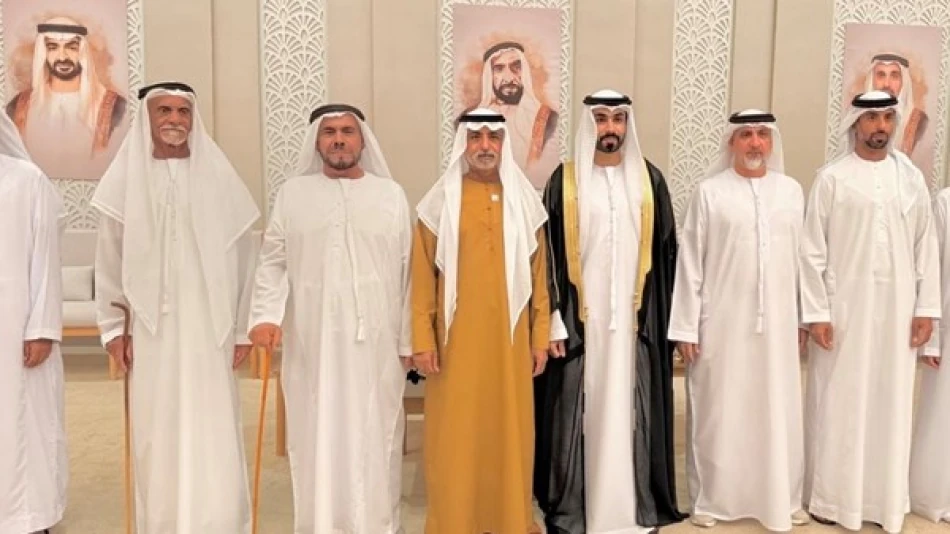
Sheikh Nuhyan Attends Khaabi Family's Joyous Celebration in Al Ain
UAE Minister of Tolerance Attends Traditional Wedding, Highlighting Cultural Values and Social Cohesion
Sheikh Nahyan bin Mubarak Al Nahyan, UAE Minister of Tolerance and Coexistence, attended a traditional wedding reception in Al Ain, demonstrating the Emirates' commitment to preserving cultural heritage while fostering social unity. The event showcased how government officials maintain close ties with citizens, reinforcing the UAE's approach to inclusive governance and cultural preservation.
High-Profile Attendance Reflects UAE's Social Fabric
The wedding reception, held at Al Haili Wedding Hall in Al Ain, celebrated the marriage of Mohammed, son of Khalfan Jumaa Saif Al Kaabi, to the daughter of Mohammed Ali Saeed Al Kaabi. Sheikh Nahyan's presence at this family celebration exemplifies the UAE leadership's tradition of maintaining personal connections with citizens across all social levels.
During the ceremony, Sheikh Nahyan extended congratulations to the newlyweds and their families, wishing them a stable and prosperous married life. His attendance underscores the government's emphasis on family values as a cornerstone of Emirati society.
Cultural Heritage Takes Center Stage
The celebration featured traditional Emirati folk performances, including heritage songs and folkloric displays that highlighted the country's rich cultural legacy. These elements reflect the UAE's broader strategy of preserving national identity amid rapid modernization and international expansion.
Balancing Tradition with Progress
The wedding's traditional format, combined with high-level government participation, illustrates how the UAE successfully balances cultural preservation with its position as a global business hub. This approach has become a model for other Gulf states seeking to maintain their cultural identity while pursuing economic diversification.
Government-Citizen Relations in Focus
The families expressed deep appreciation for Sheikh Nahyan's participation, emphasizing their pride in the leadership's authentic connection with citizens. This interaction represents the UAE's unique governance model, where accessibility and personal engagement remain priorities despite the country's rapid growth and international prominence.
Such events serve multiple purposes: they reinforce social cohesion, demonstrate governmental accessibility, and preserve cultural traditions that might otherwise fade in an increasingly globalized society. For the UAE, these celebrations are not merely social gatherings but strategic investments in national unity and cultural continuity.
Most Viewed News

 Layla Al Mansoori
Layla Al Mansoori






